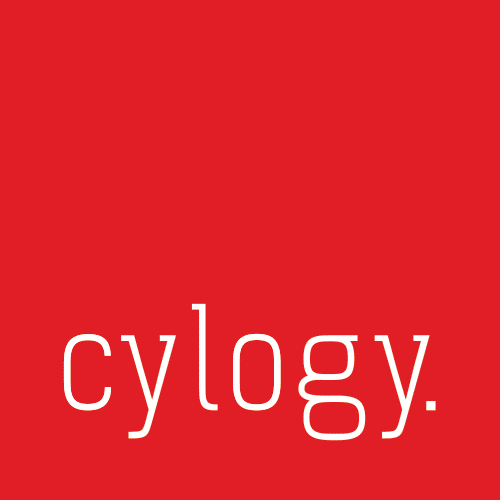One of the most important evolutions in the coming years will be the emergence of a Software-as-a-Service (SaaS) model for the platform. This was first announced at the 2019 Sitecore Symposium, and reiterated at the 2020 conference where Sitecore CEO Steve Tzikakis promised a “pure SaaS” version of Sitecore; our observation that this will “represent a landmark change in the evolution of the Sitecore platform and will impact licensing, site management, upgrades, development processes, the partner network and more” still stands. The commitment to SaaS has also been reflected in the recent acquisitions by Sitecore, all of which have SaaS offerings, as well as elements of the platform like the Sitecore Content Hub being provided on a SaaS mode.
SaaS is a substantial change for Sitecore; we are increasingly being asked by clients how it will impact them. If you’re currently on-premises or running a cloud-based instance on virtual machines, a SaaS-based Sitecore platform will be very different in how you manage and license it.
In this post, we’re going to answer some of the key questions about a future SaaS version of Sitecore. Even though it may be some time away and some details are still vague, it is useful for teams to consider what the move to SaaS means, either as an existing or a potential future Sitecore customer. If you are considering your digital or customer experience strategy over the next two to five years and how Sitecore fits into that, or if you are making major investments in your digital operations – for example in ramping up your DevOps approach – then the future availability of Sitecore as a SaaS platform may be a consideration in any decisions you make.
What is the latest news from on Sitecore’s SaaS journey?
While there are a lot of details to be hammered out, Sitecore are updating customers. There is a Sitecore FAQ page that is regularly maintained. In June Sitecore also released a video all about the Sitecore SaaS journey featuring Pieter Brinkman and Rob Earlam. This introduces the concept of the “Composable DXP” and gives some clues about what the SaaS offering looks like, particularly in the shorter to medium time. We would recommend watching this.
What is the timetable for the introduction of the Sitecore SaaS platform?
At the moment, there is no confirmed date for when the first full SaaS-based offering for the Sitecore Experience Platform will be available, and even then, the roll-out will probably be gradual, with a full evolution likely to take some time.
On Sitecore’s SaaS FAQs page, they talk about Content-as-a-Service (CaaS) – an evolution of the Sitecore Content Hub SaaS offering – being planned for early-2021, and “Experience-as-a-Service” being “delivered later in 2021”. While Sitecore is fully committed to SaaS, the overall timetable is vague. The video also makes that point that many of the constituent parts of the overall Sitecore platform are available on a SaaS basis, including the offerings from recent acquisitions.
There is also no announcement relating to any conclusion of support for current versions of Sitecore, and the video reiterates support for the full integrated “Platform DXP”. Although it is possible that Sitecore may only offer a SaaS option at some stage, this is likely to be years off, so there is absolutely no need to hit the panic button or make any decisions now.
Are the licensing model and associated costs likely to change?
In moving over to SaaS, we think one of the major areas of change for existing Sitecore customers will be the licensing model and related costs. At this point, we need to stress that there have been no announcements, and details may vary. However, it’s our assumption that SaaS licensing and costs may be very different to an on-premises Sitecore license. This will certainly be the case for those long-time Sitecore customers who have an arrangement based on a perpetual license and maintenance fees.
Because there will be changes, this may be the source of some tension when costs potentially switch to a recurring basis based on a usage model. Monthly fees are likely to rise for those customers on a perpetual license who made an initial investment in Sitecore and may feel that the word “perpetual” now has a bit of a hollow ring about it, particularly if support for some current options ends.
However, it is crucial to consider the total cost of ownership here. One of the associated hidden costs with Sitecore is upgrades, which can be significant projects in themselves; moving to SaaS makes these a thing of the past. There are also going to be fewer ongoing costs associated with resourcing for managing infrastructure and / or arrangements with hosting, so this needs to be factored in when considering cost implications. In the longer term, SaaS may actually be preferable and more cost-effective.
For new customers, the licensing arrangement and costs for a Sitecore SaaS-based platform are likely to be attractive, considering the reduced upfront cost and flexibility that SaaS provides. This will lower the barriers to entry for new customers.
Will the SaaS platform offering be the same?
The answer to this is yes and no. The SaaS update video introduces the idea of the SaaS iteration of Sitecore supporting a “Composable DXP” model, where a client takes a best-of-breed approach to a DXP made of constituent technologies that could come from different vendors, with integrations driven through an API-first approach. This is differentiated from a “Platform DXP” which is an integrated (and essentially monolithic) platform closer to the current offering.
The merits of the Composable DXP are positioned as being far more agile, flexible and suited to individual needs, and allowing customers to use their favourite existing technologies so they are not starting from scratch. This means that the Sitecore SaaS offering will provide subscriptions to the separate parts of the platform, such as Content Hub. We think that’s good news for customers who want to utilise parts of the Sitecore universe but don’t want to invest in the whole platform.
The question that existing Sitecore customers will ask is whether there will be a fully integrated SaaS version of the current platform? At the end of the video the longer-term roadmap is covered briefly, committing to an integrated headless DXP and then a full DXP as the end goal.
What a full DXP on SaaS might look like is hard to ascertain. From a Sitecore development perspective, a fully integrated Sitecore SaaS model represents a significant reordering of much of the platform. This means there may be some changes to the platform; it is quite possible that not all the elements of the existing solution will be recreated in the SaaS version, and it may also take a long time to get to a full version.
While this means the platform may be different, the chances are, it will make the platform better. Sitecore will undoubtedly listen to customers when considering the product roadmap for the SaaS platform version, and when there is strong feedback, it will guide decisions on features and prioritization.
What happens if some elements of my Sitecore instance need to be kept on-premises?
Risk and compliance considerations might mean some elements of your Sitecore instance will need to be kept on-premises. Here, the detail of what is going to be possible and what isn’t is going to be down to the detail of the SaaS offering and your instance. For example, you may be reliant on some kind of plug-in or workaround. However, the Composable DXP model provides flexible options for customers.
When the picture is clearer, teams will need to go through a detailed assessment of the platform, and work out what can be moved to SaaS and what can’t. The answers to this question might also change as more and more elements of the Sitecore platform move over to SaaS.
Will the SaaS platform be easier to manage?
One of the strengths of SaaS is that it takes away much of the pain associated with managing your platform. Either your IT function or your digital agency will be handing back some responsibility to Sitecore. In a nutshell, you’re no longer dealing with the everyday management of servers and many of the processes involved in deployment, and of course anything to do with upgrades, new releases, performance and security patches. Moving to SaaS is likely to be an attractive option, particularly if you manage this aspect in-house and you don’t always feel you have the required resources. You may feel less immediate benefit if most of the day-to-day management of the platform is already handled by your digital agency.
What will happen to the way my DevOps is set-up?
Whether managed by your organization or your digital agency, when you move to a SaaS model, a lot of the complexity around the way your DevOps is set up is likely to disappear. This will impact your automated processes, your environments and your deployment approaches.
This might be a relief through reducing some of the burden of being responsible for complicated environments; however, it may also involve losing some workflows and customized approaches that have been of high value, for example, in seeking multi-step approvals when things move from UAT through to the staging environment. You may also rely on tools like Octopus Deploy, and people might already be comfortable with the role they currently play in your overall DevOps set-up.
Whatever you do, your DevOps under SaaS will look different to your current set-up. If you have custom practices, what happens to these needs to be considered as part of the detail in planning. A potential move to SaaS may also influence whether you decide to make significant investments in DevOps right now, as value may be questionable if you are then likely to move to SaaS just months later.
What will performance be like?
Sitecore is a very sophisticated platform with a lot of moving parts, with multiple services running and various databases in the backend. In some instances, this can impact performance, particularly when making content changes. With a Sitecore SaaS version, we believe performance and reliability is going to be very high as it will be managed by the experts and have optimal settings, resulting in better uptime and a strong user experience. Although there is the potential for the odd teething problem with any new service, we believe that in the long-run, performance will be strong.
Will moving to SaaS impact my relationship with my digital agency?
Digital agencies, what they offer and how they work are impacted by SaaS. You may well need to renegotiate the services your agency provides and your basic work processes.
Moving to SaaS
Overall, we think there will be a lot of positives involved in moving over to a SaaS model. DevOps will be simpler, there are far fewer things to manage, good performance is likely and it lowers the barrier to entry for newcomers to Sitecore. You also wave goodbye to painful upgrades. A Composable DXP involving Sitecore products opens up access to more customers. However, SaaS will be a change for existing customers which is not always easy, particularly when moving over to a new licensing agreement.
SaaS in Sitecore is still a long way off, with a lot of questions yet to be addressed. When we have more definite details, we’ll be covering this in our blog and keeping you updated. Watch this space!





